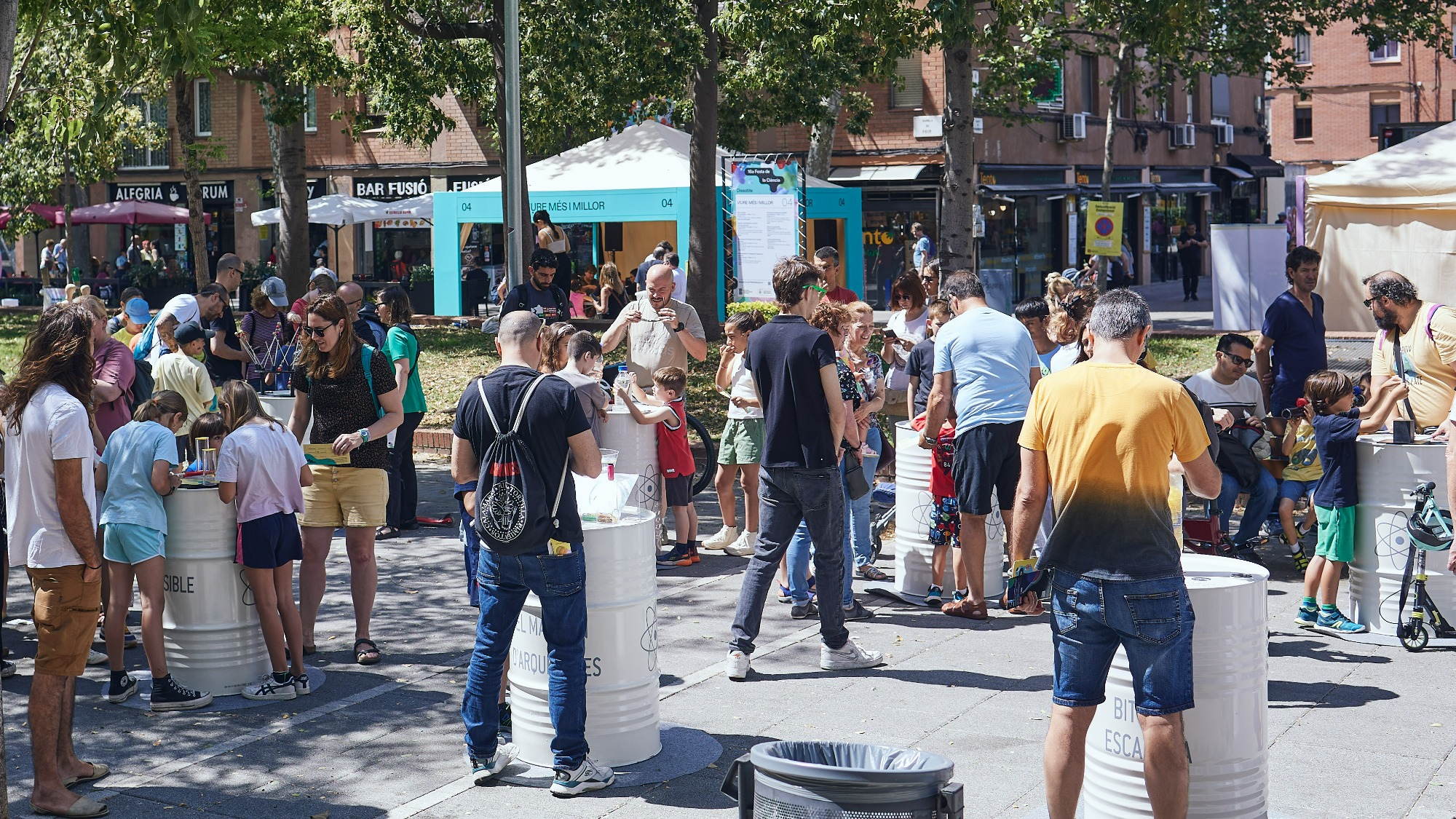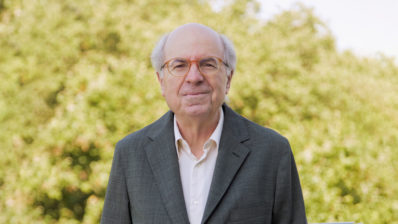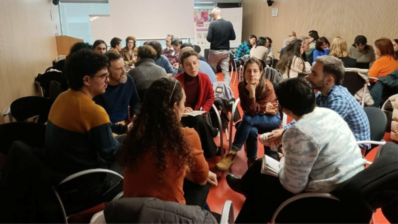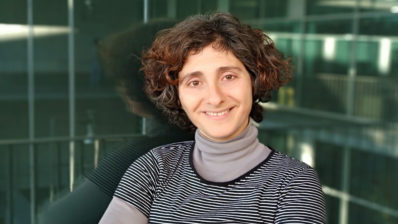Rambla Prim street, in Barcelona, is longer than it seems, and so some of us got lost trying to get to our destination, between Plaça de Llevant and Carrer de Llull: the place where the 16th edition of the Science Festival took place in Barcelona. More than 16,000 people attended on June 10 and 11 and nearly 180 activities took place. Among them, we highlight two board games organized by the Department of Medicine and Life Sciences, Pompeu Fabra University (MELIS-UPF) and the Global Health Institute of Barcelona (ISGlobal), and which teach the importance of knowing the challenges of research and the problem of microbial resistance, respectively.
Let’s do a cell culture!
“From researcher to researcher, the experiment goes round!” was the name of the scientific version of the Goose Game designed by MELIS-UPF, which was present in this edition on Saturday in stand 4 “Living more and better”. This project, led by biologist and scientific communicator Marta Vila Cejudo, aims to raise awareness of the challenges and opportunities that arise during the process of scientific research. In this particular case, the game is focused on the process of making a successful cell culture.
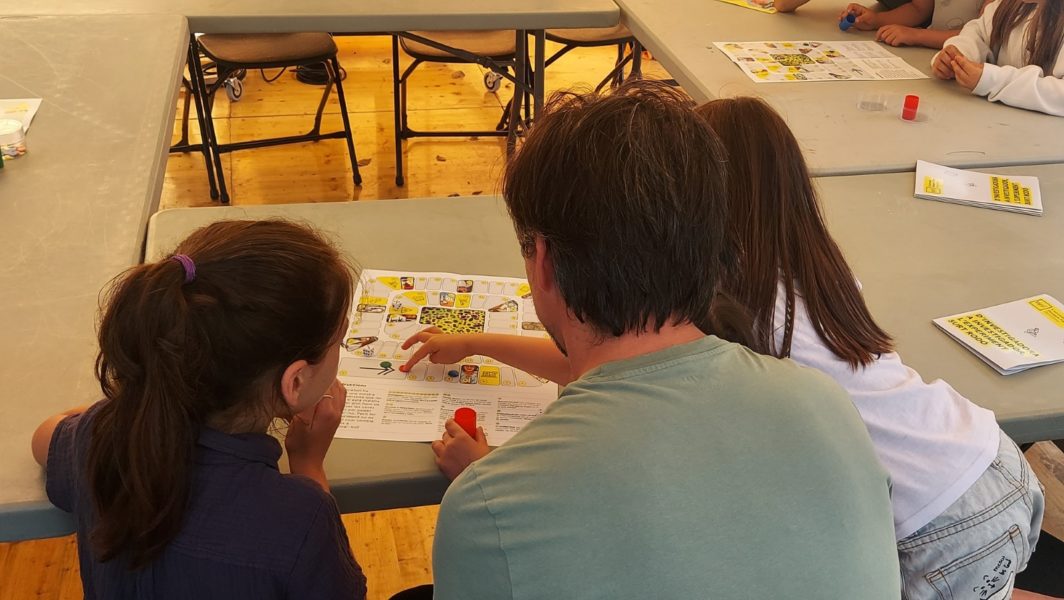
“I was thinking about content that could be familiar. At the Science Festival, the audience that attends the most are families with small children. That’s why, in the end, we develop a board game, which is more entertaining than a talk and where we can convey the message in a simpler way and which can resonate at any age“, comments Marta. Another option she thought about was a memory game, something the European Molecular Biology Laboratory – Barcelona (EMBL Barcelona) used last year to participate in the previous edition of this initiative of the city of Barcelona.
“Doing an experiment is not that simple. There are things that help you move forward, such as scientific and technical services, but others taht can happen to you that hinder your path and delay you, such as not having written the details of the experiment in your notebook. This game allows us to tell that story.”
The experiment in the game progresses when:
- You meet other researchers along the way.
- You have a last minute meeting.
- You get help from the technical service staff.
And it is delayed when:
- You didn’t study the protocol and you need to read it again.
- Due to poor timing, the materials have not arrived for you to continue.
- The cells have not grown and so you cannot work.
- The cells have been contaminated and the experiment must be restarted.
However, a curious fact that this game presents are the images of the researchers who are represented. Marta tells us that the graphic services department of the UPF were in charge of making the design… using artificial intelligence! The ‘geese’ that play the game were profiled to represent men and women of various ages, cultures and ethnicities.
If this caught your attention and you want to know more about this game and get it for free, you can write an email to marta.vila@upf.edu as it is not available in digital format… yet!
What is behind microbial resistance?
Micro-Combat is the latest ISGlobal card game, and it was presented for the second year at the Science Festival, this time in space 4 “Living more and better”. The aim of the game is to teach the risks of self-medicating with antibiotics and the public health problems that this generates. Marina Tarrús, biotechnologist and scientific communication technician at the institute, explains that “increasingly, due to the abuse and misuse of antibiotic treatments, the different bacterial species that can potentially affect our health are generating resistance. Within a few years it will be one of the main causes of mortality – above cancer, air pollution, etc.”. She adds: “That’s why it’s important to talk about it now.”
Micro-Combat is designed to be played solo or as a team, digitally or with physical cards. ISGlobal credits
This game, led by Elisabet Guiral, Clara Ballesté and Jordi Vila, was possible thanks to the grant received by the European Antibiotic Awareness Center and the European Health Forum. It can currently be downloaded for free in the Apple Store or Google Play, or in card format on the Micro-Combat page.


